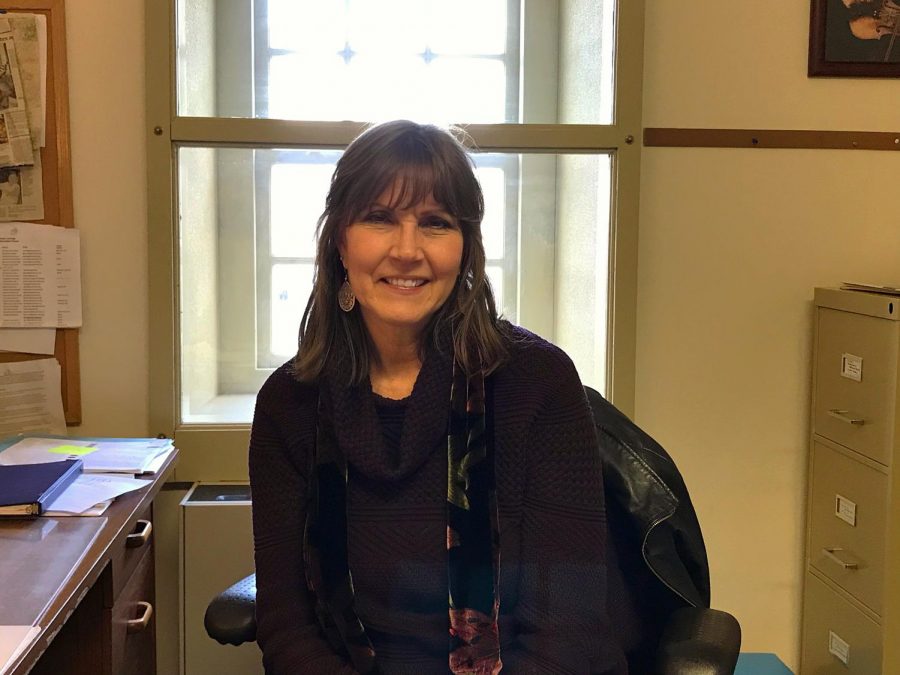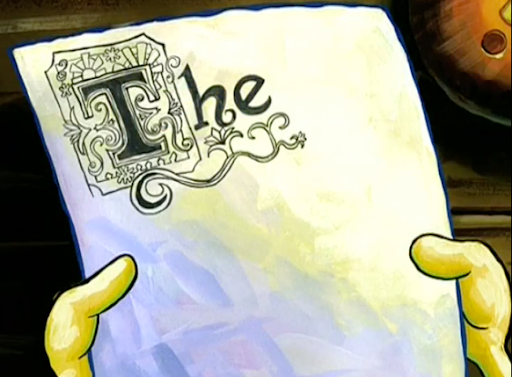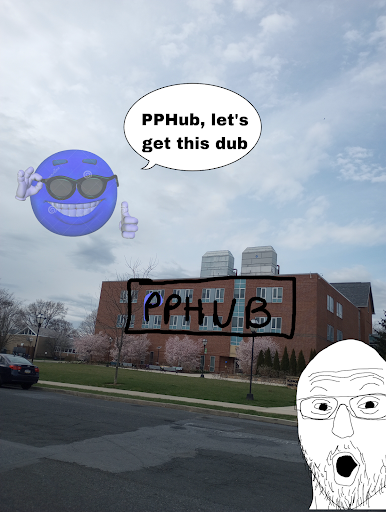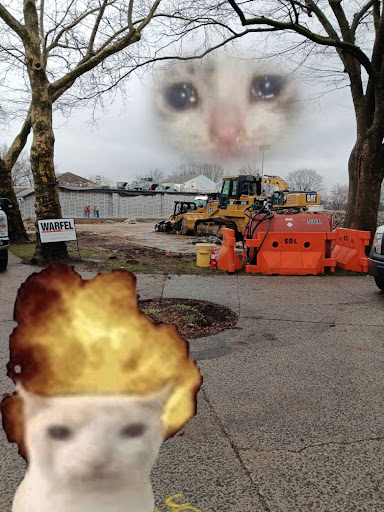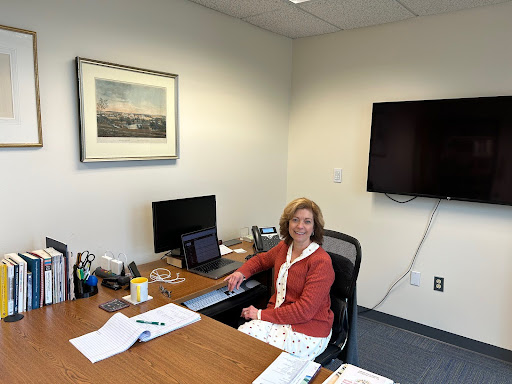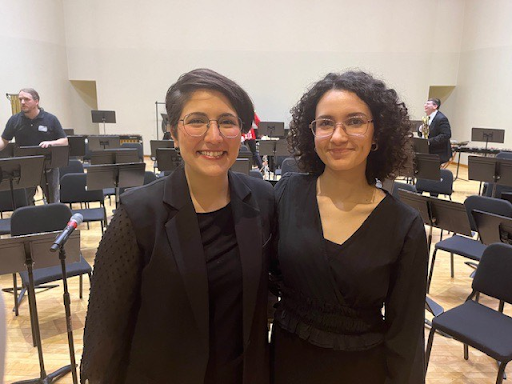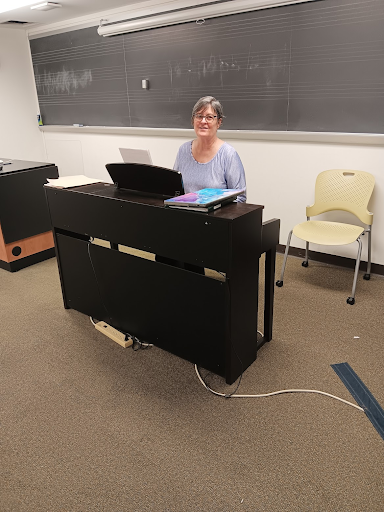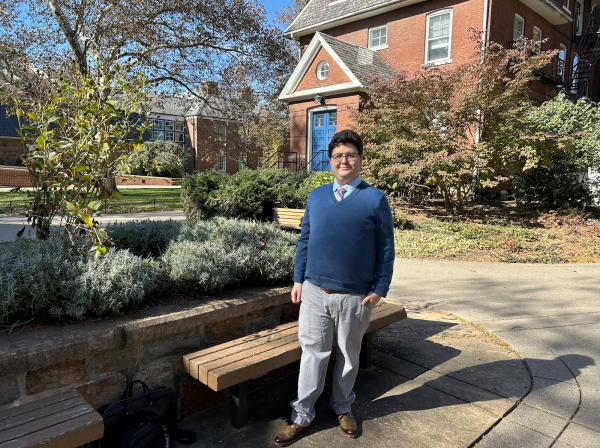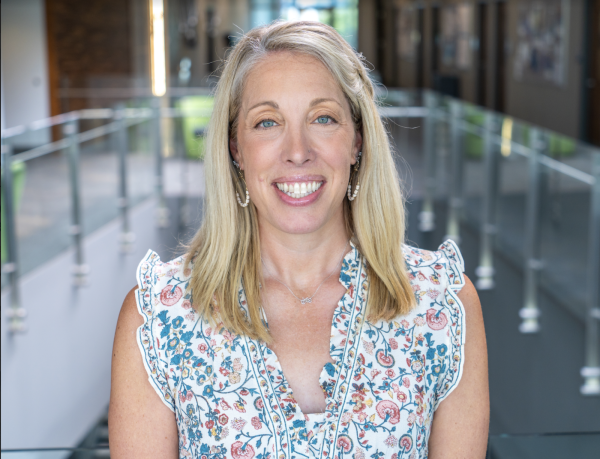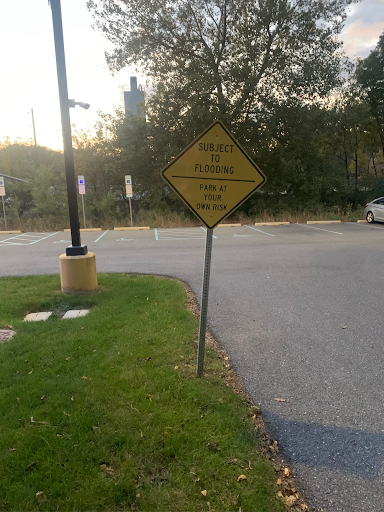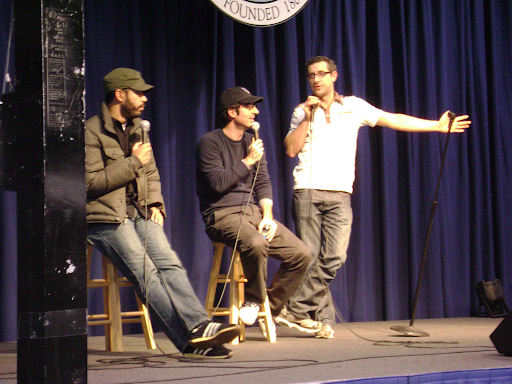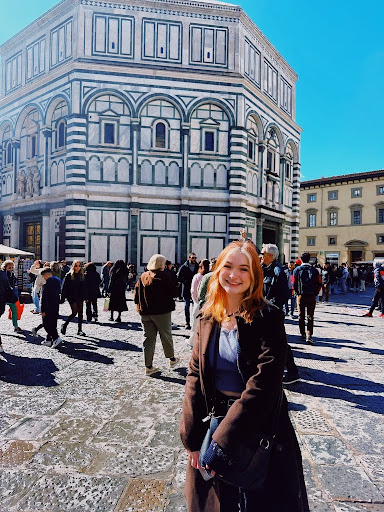Professor Spotlight: Joy Hirokawa
Dr. Joy Hirokawa is assistant professor of music education. She received a bachelor’s degree in music education, a master’s in music at Temple University, and a doctorate in music arts at Boston University. She is the founder and artistic director of The Bel Canto Children’s Chorus and also teaches a course every year for Villanova University’s Summer Music Program that focuses on developing the child voice. Hirokawa taught in the public school system for 20 years before coming to Moravian.
What inspired you to go into your field of study?
I was always involved in music as a kid but didn’t really set out to be a music teacher per se, until my senior year [of high school]. I didn’t get into my intended liberal arts school, and realized that path wasn’t for me anyway, so I switched to music. [After I graduated] I taught in public schools at all levels. [During] a sabbatical from teaching, I took additional music courses, found a [graduate] program I liked, and at that point pursued a doctoral degree. This really changed my teaching in the public schools significantly. When this opening happened at Moravian, I applied for it and have been here for 10 years now.
What research are you currently working on?
The research I did last summer with my student’s [Joseph Hall ‘19] SOAR project had to do with developing awareness of people from various cultures and backgrounds, for students to understand how they could get to know people of other backgrounds through musical means. Choral Village was the program. We had middle-school aged youth from all different socioeconomic, racial, ethnic, and gender backgrounds, and we picked music that was coming from different backgrounds. So we sang in different languages, had theater games that explored values, did drumming together to create unity, and ate food from different cultures. We had special presenters from different backgrounds. [The program took place] over the course of a week and was an amazing experience.
What do you think is the most recent important development in your field of study?
I think what’s important is that we’re starting to finally see a swinging back of the pendulum and [recognizing] the importance of the arts in education, the creative and human skills that we learn through the arts. In public schools there’s so much emphasis on testing, testing, testing. Now the [focus is again on] interpersonal skills, the creative thinking that there can be more than one answer to any given question. The broader, more inclusive way of thinking: people are starting to notice that we need these. These skills are really important in the field, in industry, and in business, and that we have people who can think out of the box and not just follow directions.
What job would you have if you couldn’t be a professor, regardless of salary and job outcome? Why?
I’d be conducting children/youth choirs, singing. Honestly, I really prefer the youth choirs and working with kids to grown-ups. They’re so much more fun.
What do you know now that you wished you knew when you were in college?
It’s kind of cliché, but don’t sweat the small stuff. I think the world that you all are facing as college graduates now is way different than what I had when I graduated. The youths who are graduating now are not going out into the world with an expectation of, “I’m going to be in one place for a long time.” This generation of college graduates seems to be more flexible and mobile in their thinking of where they’re going to be, and I think there’s value in that. It’s a different workplace now than it was when I graduated.
What is your biggest student pet peeve?
Don’t try to weasel out of stuff. Just fess up. If you blew something off, you blew it off. Just be open and honest with your professor and know that truly we really, really do want you all to succeed. I think sometimes students think that, “Oh, this professor gave me this grade.” No. We are here because we want you to succeed and be the best you can be. Take ownership of that and let your professors help you. When someone has something that’s bothering them or something they don’t understand and they don’t share it with the professor, that’s not good. There has to be dialogue.
What was the last streaming show that you binge-watched or the last good book that you read?
“The Crown” on Netflix. It was fabulous. Then I saw “Dunkirk” and “The Darkest Hour.” Seeing the historical dramas in that order was really, really exciting.
What is something interesting about you that most people don’t know?
My husband and I used to own alpacas. They are no longer living with us, but we had 13 at one point. I’ve got boxes full of alpaca yarn if anyone is interested in knitting. I live on a farm and own two horses, so I ride regularly. Alpacas are somewhat low maintenance. Basically, you just feed them. They’re very standoffish, and they’re very much, “Hey, you’re interesting—no, don’t touch me.” They’re curious with people, but don’t particularly like to be handled by people. They spit and it’s not pleasant. We had someone come in to do the shearing, which is quite a process. But we now have bags of fleece and boxes of yarn.
What’s your spirit animal and why?
A horse. They’re just amazing animals. When you ride and you’re connecting with your horse and they’re responding to what you’re doing, it’s pretty freeing.
Any student who wants to major in the arts faces challenges. As a professor in a highly competitive field, what advice and encouragement do you give students who wish to pursue what some incorrectly consider “soft” majors like music, art, or English?
Well, if you’re in something like music, you have to practice, practice, practice, and practice some more. It requires some significant organization of your time and commitment. Anything in the arts is HIGHLY competitive and you have to really find your niche. I’m not a solo performer. My performance medium is the singers in front of me. You need to find what is right for you.
You have to be prepared that there’s going to be a lot of stumbling blocks along the way, and [know] that there’s not a lot of money doing it. Any of these “soft majors”: don’t do it unless you absolutely can’t NOT do it. It becomes so much a part of your identity, of who you are. Your profession is you, really. And if it’s not that way, you shouldn’t be doing it. These fields are too hard to make your way unless you’re totally passionate about it.
If you’re a musician, unless you’re in education where you have a regular, steady job teaching, most musicians are freelance, picking up jobs from all over the place. Even those who have full-time teaching jobs are almost always doing multiple things. You want to teach, keep performing, play gigs on the side, or have a Sunday church job or choir. So many are doing multiple things.
If writing is your passion, there are so many ways and so many avenues where you can apply it, and you can do just about anything if you’re a good writer. My son was an English and French major, and he found his way and utilized his writing in administrative work for a nonprofit in New York. From that he made connections and is now in law school. The writing was important all the way through. To be able to clearly articulate yourself is an enormous asset no matter what you’re doing.


